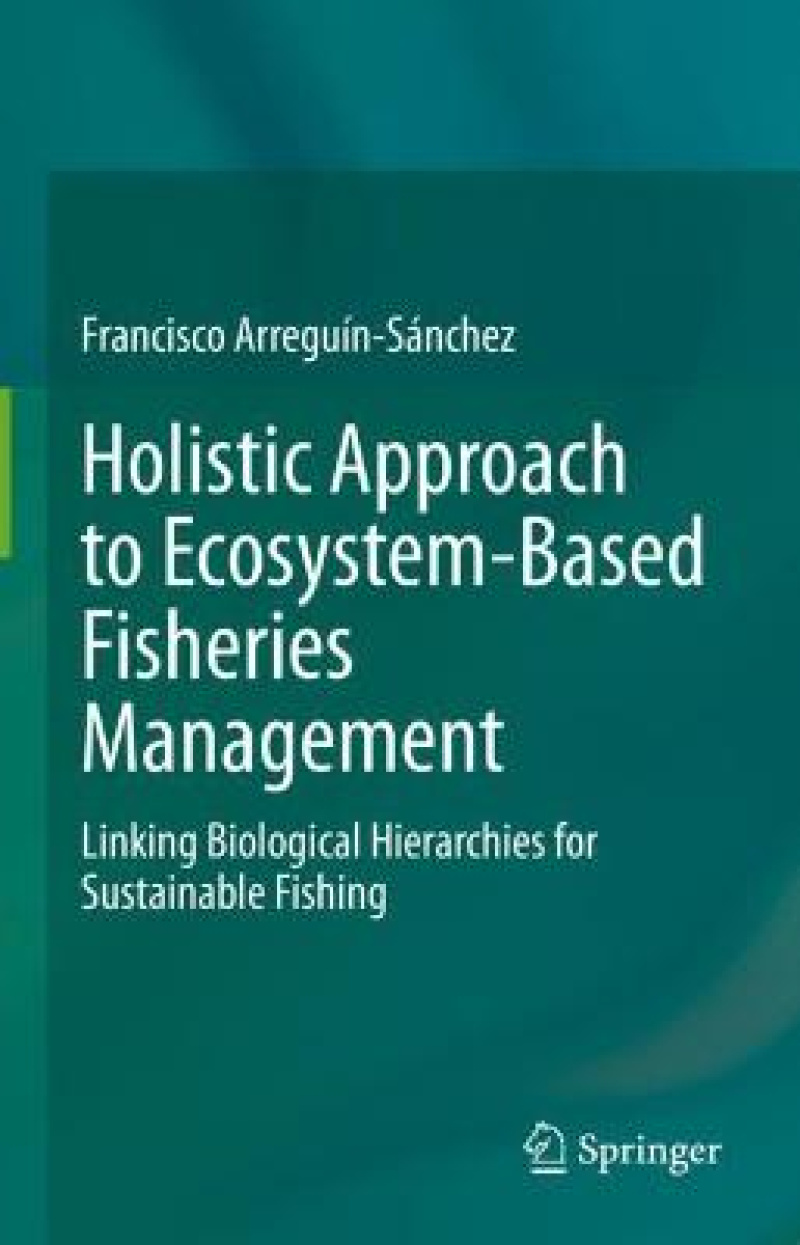This book provides cutting-edge scientific idea and novel concepts on the ecosystem-based approach to fisheries management. It begins by reviewing the scientific fundamentals and problems currently faced by conventional fisheries science, based on population dynamics. In turn, it reviews the theoretical basis of ecosystem dynamics, including selected ecosystem indicators. Surplus production and balanced harvests are discussed in the ecosystem dynamics context. Several ecosystem-holistic indicators are described, but particular emphasis is placed on two: the noxicline (gain in entropy due to loss of biomass) and resilience, which are expressed as ecosystem (holistic) points of reference for defining allowable harvest rates. Both biological (population) and ecosystem (holistic) points of reference are subsequently analyzed in the context of fisheries management and conservation. An adaptability concept is also discussed as a management policy for facing climate change. In closing, the concepts presented are applied to six study cases involving a range of different ecosystems and fisheries.
Les mer
This book provides cutting-edge scientific idea and novel concepts on the ecosystem-based approach to fisheries management. In turn, it reviews the theoretical basis of ecosystem dynamics, including selected ecosystem indicators.
Les mer
Chapter 1 - Introduction.- Chapter 2 - Conventional fisheries management and the need of the ecosystem approach.- Chapter 3 - Ecosystem trophic structure and dynamics: basic concepts Chapter 4 - Fisheries within the ecosystem context: the production, surplus production and balanced harvest.- Chapter 5 -Holistic indicators: theoretical basis.- Chapter 6 - Resilience.- Chapter 7 - Reference Points: Stock-based BRP vs. ecosystem(holistic)-based BRP.- Chapter 8 - Managing fisheries under an holistic approach.- Chapter 9 - Adaptability as management policy.- Chapter 10 - Selected study cases.- Chapter 11- Holistic approach and management practice.
Les mer
This book provides cutting-edge scientific idea and novel concepts on the ecosystem-based approach to fisheries management. It begins by reviewing the scientific fundamentals and problems currently faced by conventional fisheries science, based on population dynamics. In turn, it reviews the theoretical basis of ecosystem dynamics, including selected ecosystem indicators. Surplus production and balanced harvests are discussed in the ecosystem dynamics context. Several ecosystem-holistic indicators are described, but particular emphasis is placed on two: the noxicline (gain in entropy due to loss of biomass) and resilience, which are expressed as ecosystem (holistic) points of reference for defining allowable harvest rates. Both biological (population) and ecosystem (holistic) points of reference are subsequently analyzed in the context of fisheries management and conservation. An adaptability concept is also discussed as a management policy for facing climate change. In closing, the concepts presented are applied to six study cases involving a range of different ecosystems and fisheries.
Les mer
It reviews the current problems faced by conventional fisheries science Biological and ecosystem perspectives are analyzed in the context of fisheries management Includes six case studies, in which the book’s concepts are applied to various types of ecosystem
Les mer
GPSR Compliance
The European Union's (EU) General Product Safety Regulation (GPSR) is a set of rules that requires consumer products to be safe and our obligations to ensure this.
If you have any concerns about our products you can contact us on ProductSafety@springernature.com.
In case Publisher is established outside the EU, the EU authorized representative is:
Springer Nature Customer Service Center GmbH
Europaplatz 3
69115 Heidelberg, Germany
ProductSafety@springernature.com
Les mer
Produktdetaljer
ISBN
9783030968465
Publisert
2022-03-31
Utgiver
Vendor
Springer Nature Switzerland AG
Høyde
235 mm
Bredde
155 mm
Aldersnivå
Research, P, 06
Språk
Product language
Engelsk
Format
Product format
Innbundet
Forfatter
Biographical note
Francisco Arreguín-Sánchez is a Professor at the Instituto Politécnico Nacional, Centro Interdisciplinario de Ciencias Marinas. Research lines: Dynamics of exploited ecosystems and populations; climate change, and fisheries management. Currently his chief scientific research is in ecosystems dynamics, with a focus on holistic properties like resilience and self-organization, and their response to disturbances caused by climate change and fishing.
Member of the Mexican Academy of Sciences, National Researcher Level 3 of the National System of Researchers. Advisory Professor of East China Normal University. Director at the Centro Interdisciplinario de Ciencias Marinas, IPN, (2001-2004). In 2010 Prof. Arreguín-Sánchez received the Lázaro Cárdenas Prize, which was presented by the President of Mexico; he has also received the Prize of Science and Technology, and the Medal of Scientific and Technological Merit, both awarded by the Congress of Baja California Sur State.FAOconsultant on fisheries research policy, development plans, fisheries management, impact of fishing on ecosystems, and training professionals in fisheries research, in several Latin American countries. In addition to being a Counselor and Member of several scientific committees for scientific research institutions in Mexico, Prof. Arreguín-Sánchez has participated in various international and national evaluation committees for research projects (i.e. the European Union 6th Framework Program, CONICET Argentina, COLCIENCIAS Colombia, CONICYT Chile, and CONACyT Mexico). He is also a former member of the Advisory Board of the Instituto Nacional de Pesca (2003-2007) and current member of the Governing Bodies of several scientific research institutions. He has also contributed to the training of human resources, having adviser of 26 doctoral theses, 34 master's, and has taught more than 130 courses at the graduate level.